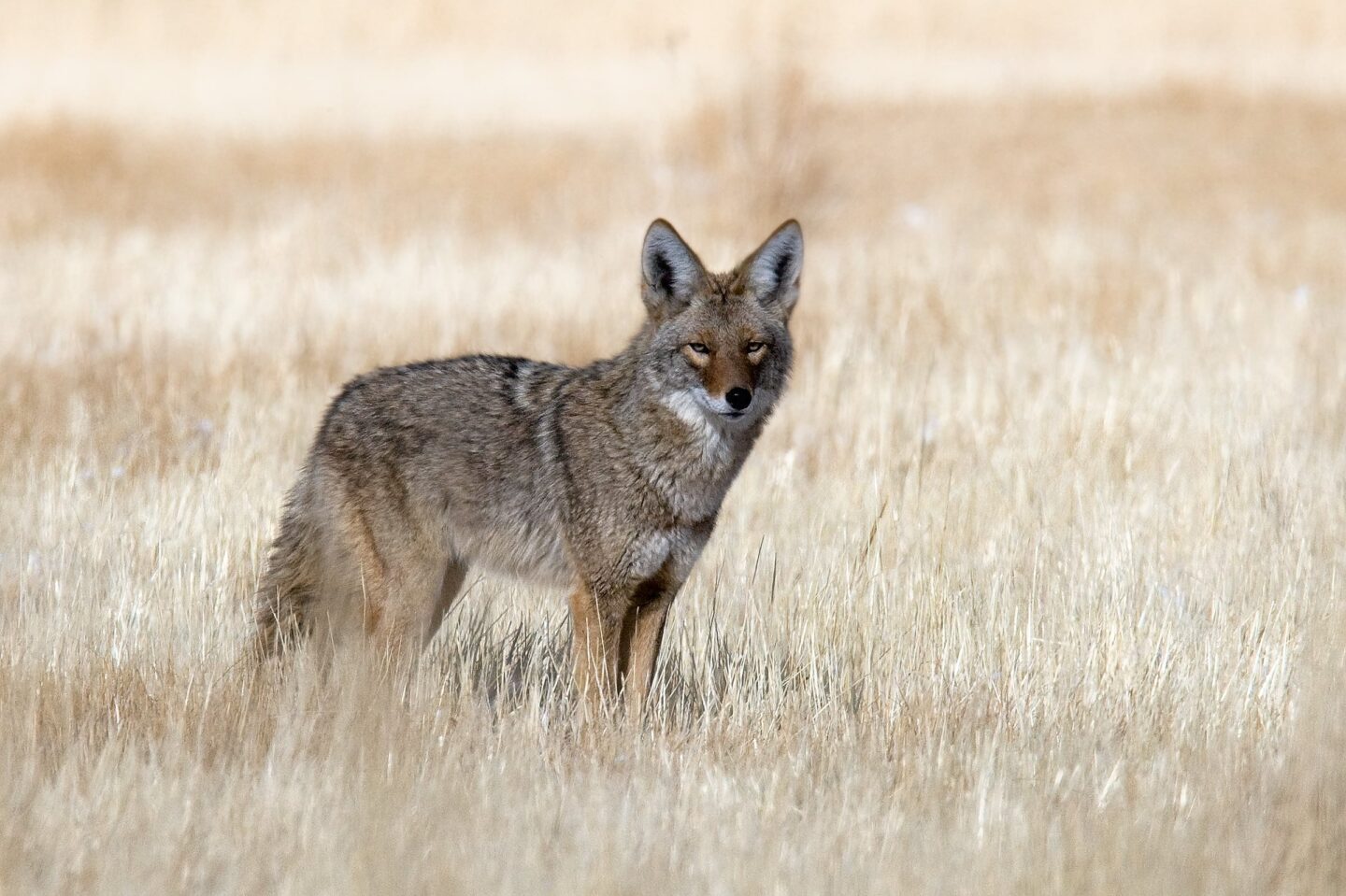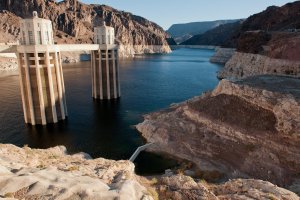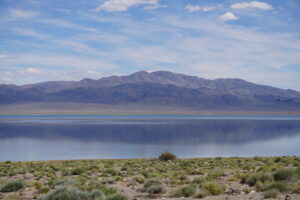5:00
News Story
Is Nevada’s Wildlife Commission on the brink of extinction?
Board sides with ranchers, hunters on wild horse roundups and coyote killing contests
The Nevada Wildlife Commission’s endorsement Friday of a plan to remove 75% of wild horses and burros from the state’s public lands, along with its refusal to consider a ban on controversial coyote killing contests, are both out of step with the desires of residents and tourists and could hasten efforts to revamp the board, say critics.
The Commission is dominated by hunting and ranching interests under a statutory scheme that requires it to have five “sportsmen,” i.e. hunters, fishermen or trappers who have purchased a license in three of the past four years, one rancher, one farmer, one conservationist, and one member of the public.
The lopsided membership, critics say, renders the board ineffective and preoccupied with looking out for ranchers and hunters at the peril of the wildlife it is charged with protecting.
“You’ve got five representatives on this board that represent three and a half percent of Nevada,” former Nevada Republican legislator turned lobbyist Warren Hardy, referring to the percentage of Nevadans who purchase hunting licenses each year, told the commission Friday during a meeting in Las Vegas.
A presentation from the Humane Society of the United States, which is represented by Hardy, asserted changing times and perceptions of animal rights have diminished tolerance of wanton killing contests among residents and visitors, and are compromising the integrity of the state’s legal gambling industry, thereby posing a threat to the economy.
In 2019, hoping to dry up prize money for the events, opponents unsuccessfully argued to Nevada gaming regulators that the contests violate gambling laws.
Commissioners widely applauded the HSUS presentation as the best they’ve seen, however, they suggested nothing has changed since the Commission last discarded a proposal in 2021 to end the contests.
Other efforts to end the contests have also failed. In 2015, the Wildlife Commission voted 7-1 to reject a petition seeking to ban killing contests.
The board’s allegiance to hunting and ranching interests disregards the desires of the vast majority of the state’s population, complained Hardy.
“This is petitioning that is worthy of a conversation, no matter how long, or how hard it is. This is the democratic process. And you are the board that we are rightfully in front of, not the legislature,” Hardy said. “In my legislative career, I’ve had at least three occasions to vote to change the makeup of this commission. And all three times I voted no or declined to vote at all because I firmly believe in this process,”
Hardy added the commission’s refusal to engage in rulemaking left him no option but legislative action. A 2023 bill to prohibit the contests died in committee.
“For you guys to say ‘we’re not going to the rulemaking process so you can make your case’ is frankly not only repugnant, but unprecedented,” Hardy said, suggesting their refusal amounted to political cowardice. “You’re saying ‘we’re not going to get consensus, so we’re not going to do this.’ So why do you exist?”
The Commission is the “the least democratic of all state boards or commissions which provide oversight to a public resource,” says Dr. Donald Molde of the Nevada Wildlife Alliance.
A legislative effort last year to take a closer look at four commissions that regulate natural resources, including the Wildlife Commission, failed when it was vetoed by Gov. Joe Lombardo. However, the Joint Interim Standing Committee on Natural Resources is scheduled to delve into the Wildlife Commission’s actions on April 5.
“This will be our first chance to go before a Legislative interim study committee and make our pitch,” says Molde, noting a number of states, such as Washington, New Mexico, and Vermont are questioning whether wildlife regulation is evolving with changing attitudes about conservation.
Commissioners complained they were hearing from extremists on both sides, but not from the center.
“We are the center,” Hardy responded, noting HSUS had already compromised by advocating for an end to coyote contests, but not a ban on hunting the animals.
The America’s Wildlife Values studies of 2018 and 2021 found that about 22% of the U.S. population holds a traditional view that wildlife should be managed and used for the benefit of humans, while 44% believe humans and animals should coexist.
“This was a disappointing outcome but completely unsurprising,” Patrick Donnelly of the Center for Biological Diversity said following the meeting. “Frankly, I don’t think this petition ever had a chance. The wildlife commission is hopelessly biased toward people who kill wildlife. Until we reform the commission’s composition to truly represent all Nevadans, it will never be a venue for conservation.”
‘Failed approach to wild horse management’
Also Friday, the Wildlife commission joined a campaign to urge the federal government to escalate controversial wild horse roundups conducted by the Bureau of Land Management, in a renewed effort to remove about three-quarters of horses and burros from public lands.
The Commission endorsed a letter to BLM director Tracy Stone-Manning from the Coalition for Healthy Nevada Lands – backed by ranchers, trappers, and hunters seeking federal funding to remove tens of thousands of wild horses from the state’s public rangelands and put them in holding pens for life.
A Senate Joint Resolution with similar goals died in the 2021 Nevada Legislature.
The U.S. has close to 70,000 wild horses roaming on BLM land, the government estimates. More than two-thirds – about 45,000, plus another 4,500 burros, are in Nevada. That’s four times as many animals as the state’s appropriate management level (AML) as calculated by the BLM. The 1971 Wild Free-Roaming Horses and Burros Act says animals that exceed AML are to be removed from the range.
About 62,000 horses and 2,500 burros rounded up by government contractors are already in BLM holding facilities for the rest of their lives.
Helen Foley, a lobbyist for the American Wild Horse Conservation, noted the Coalition’s initiative would require the removal of well over 40,000 animals at a cost of $40 million and another $2 billion to maintain them in holding facilities for their lifetimes.
Foley noted that would leave “a density of one horse on 1,100 acres of land, making these significant ecotourism attractions difficult, if not impossible to find for people visiting and spending money. …Wild horse roundups and removals represent a failed approach to wild horse management.”
Foley and others support sterilization of horses rather than removal.
Fertility control has not been used on a widespread basis, animal advocate Fred Voltz told the commission. Voltz suggested “a reasonable path forward for BLM to find more money” would be to increase the cost of grazing to market rates, noting livestock “represent more than 10 times the number of wild horses and burros.”
Nevada has about half a million cattle grazing on federal land. The BLM’s grazing charge is $1.35 a month per animal unit – the estimated amount of forage required to feed a 1,000 pound animal.
The extent of damage to Nevada’s public lands from livestock and wildlife is largely a mystery because the BLM, which is charged with assessing and addressing the impacts, has reviewed less than half of the land allotted to ranchers in the state, according to data obtained through a public information request by Public Employees for Environmental Responsibility.
Note: This story was updated to correct the name of the Coalition for Healthy Nevada Lands, and to reflect that its letter is supported by ranchers.
Our stories may be republished online or in print under Creative Commons license CC BY-NC-ND 4.0. We ask that you edit only for style or to shorten, provide proper attribution and link to our website. AP and Getty images may not be republished. Please see our republishing guidelines for use of any other photos and graphics.




